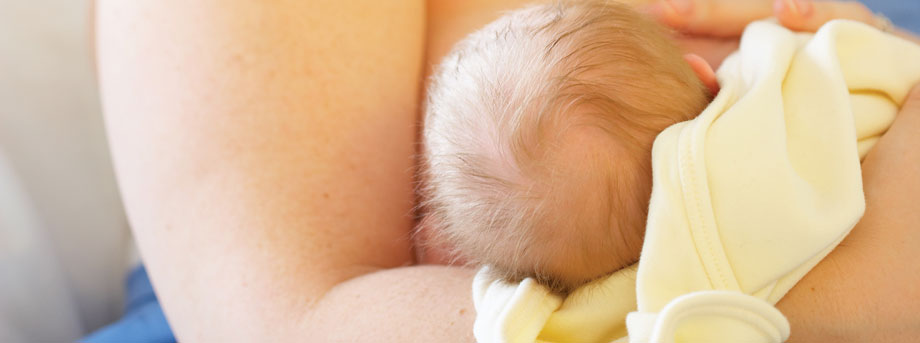Breast milk and eczema: Call for guidance
September 2nd, 2011
The largest worldwide study on the association between breastfeeding, weaning and eczema has found no clear evidence that exclusive breastfeeding for four months or longer protects against childhood eczema, according to research published in the British Journal of Dermatology.
Researchers from Nottingham, King’s College London and the University of Ulm, Germany, studied data from 51,119 eight- to twelve-year-olds, from 21 countries, in phase 2 of The International Study of Asthma and Allergies in Childhood. The research involved parent questionnaires, skin-prick tests and examinations. Their findings have prompted them to call for a review of the UK’s breastfeeding guidelines with regard to eczema.
Hywel Williams, Professor of Dermato-Epidemiology and Director of Nottingham’s Centre for Evidence Based Dermatology, said: “There is no doubt that breast is best in terms of prevention of infections and parental bonding, but mothers who cannot breastfeed should not feel guilty if their child develops eczema. The evidence that prolonged and exclusive breastfeeding protects against eczema is not convincing.”
Earlier studies suggested breastfeeding had a protective effect against eczema. The Department of Health recommends exclusive breastfeeding for six months to prevent eczema, in line with the World Health Organisation. The study authors say mounting evidence suggests that the early introduction of potentially allergenic food could increase tolerance rather than cause an allergy, although this remains to be confirmed. The study concluded that children who were exclusively breastfed for four months or more were as likely to develop eczema as children who weren’t.
Dr Carsten Flohr, who is now based at King’s College London, said: “Although there was a small protective effect of breastfeeding per se on severe eczema in affluent countries, we found no evidence that exclusive breastfeeding for four months or longer protects against eczema in either developed or developing nations. We feel that the UK breastfeeding guidelines with regard to eczema should therefore be reviewed. Further studies are now required.”
Dr Flohr stressed: “It is widely accepted that breast milk is the most important and appropriate nutrition in early life. Especially in the context of developing countries, it is also important to keep in mind that exclusive breastfeeding reduces the risk of gastrointestinal infections compared to mixed or bottle feeding. Our study does not change this notion.”
Nina Goad, of the British Association of Dermatologists, said the findings were significant, although further research was needed. She added: “Following these further studies we may need to review the UK’s advice on how long mothers should breastfeed exclusively for, and at what age we should be weaning our infants, in relation to eczema prevention.
“This study isn’t about the benefits of infant formula milk versus breast milk, nor is it questioning other benefits of breast feeding, but it is about whether breastfeeding exclusively for prolonged periods and weaning after six months, as opposed to after four months, has any impact on eczema risk.”
Tags: breastfeeding, British Association of Dermatologists, British Journal of Dermatology, Centre for Evidence Based Dermatology, Dr Carsten Flohr, eczema, Hywel Williams, King’s College London, Professor of Dermato-Epidemiology, The International Study of Asthma and Allergies in Childhood, University of Ulm, World Health Organisation
Comments are closed.
Other Research

Welcome to Associate Pro-Vice-Chancellor for Researcher Academy and Research Culture Development
Professor Jeanette Woolard has been appointed as Associate Pro-Vice-Chancellor for the Researcher Academy and Research Culture Development. […]

Strong research funding performance is a fantastic achievement
Professor Tom Rodden’s research update I am delighted to report that the University of Nottingham is […]


